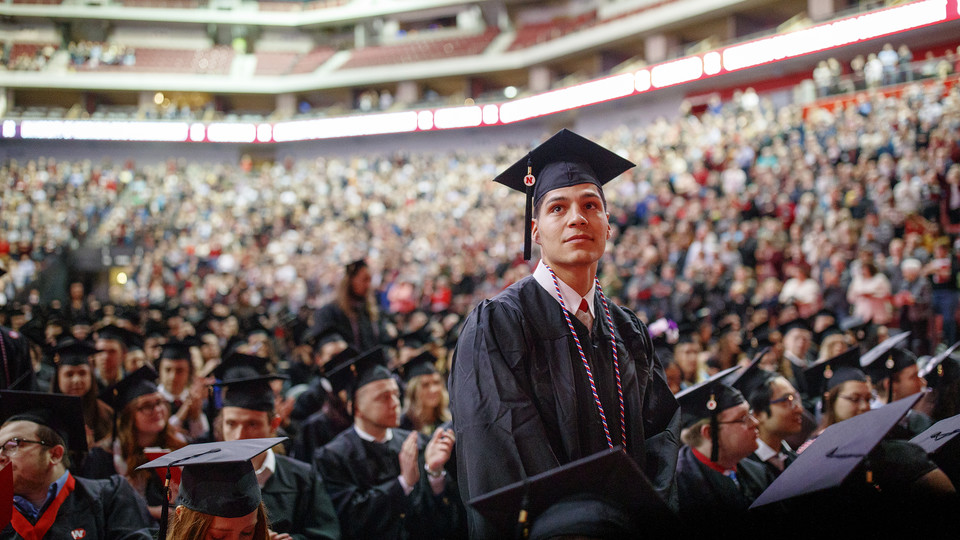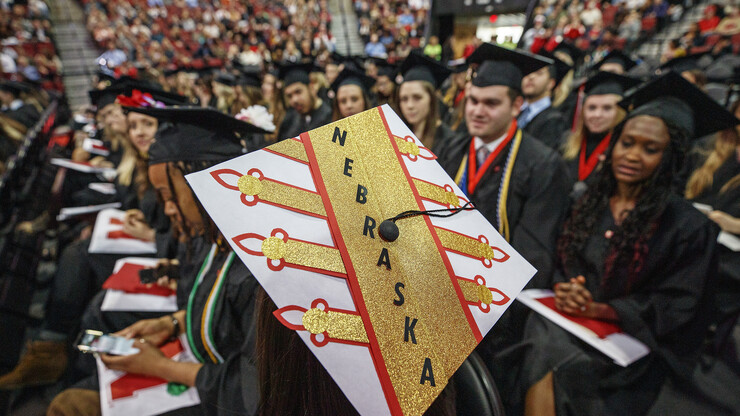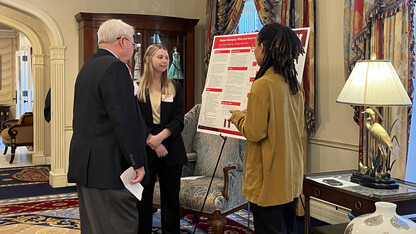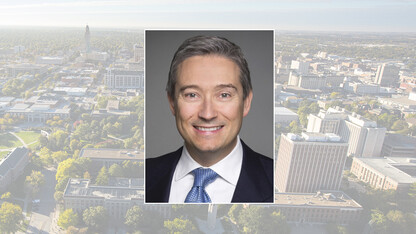· 4 min read
Nebraska registrar expands services to support student success

The University of Nebraska–Lincoln registrar’s historic role as a clearinghouse for academic records is expanding to advance student success.
The University Registrar, in collaboration with university advising and the academic colleges, has recently launched two initiatives — an enrollment scheduler and Senior Kickoff — intended to help Huskers stay on track to graduation.
The initiatives were led by Steve Booton, university registrar, and supported by Amber Williams, assistant vice chancellor for academic services and enrollment management.
“The Office of the University Registrar’s top priority is to support student success,” Williams said. “Students elect to attend UNL because we believe in the power of every person. Our goal is to develop technology, resources and programs that support each student’s unique strengths and goals. These two new initiatives do just that— we’re preparing Huskers not only for graduation, but also to make a difference in the world.”
Launched in March, the enrollment scheduler allows students to register for classes in minutes rather than hours. Offered through MyRED, the tool offers automatic schedule planning that can be tailored to specific student needs.
“The enrollment scheduler tool is designed to help students stay on track to graduate by stream-lining the schedule-building process,” Booton said. “This new system should give students more time to work with advisers and focus on coursework.”
Since students will build mock schedules prior to registration, the enrollment scheduler also allows departments to view class sections that are most in demand.
“Ultimately, this program will help the university better understand course-fill rates, allowing us to see which sections our students need and when exactly they need them,” Williams said. “Through data provided by the enrollment scheduler, we can better manage course loads which will allow more students to take classes in the semester when they need them.”
Rather than sorting through lists of individual class sections, the new system allows Huskers to generate optimized schedules that balance learning with other life activities. It also allows academic advisers to work with students, accessing tentative schedules and making suggestions to help better meet academic needs prior to enrollment.
Students will begin using the new enrollment scheduler with summer 2019 registration.
The Senior Kickoff program, offered to students during their junior year, helps Huskers set a definite path to graduation in their senior year. The program started in February with all juniors who plan to be seniors in the fall.
“The goal with Senior Kickoff is to increase communication to students so they have a clear sense of what tasks are remaining to become eligible to apply for graduation,” Booton said. “We want students to know exactly where they are in the progression toward a degree.”
Also offered through MyRED, Senior Kickoff includes: completion of a degree audit; survey to collect details about graduation plans; and working directly with an academic adviser to chart graduation plans.
The project increases communication with students, helping them define graduation needs and the tasks that must be completed to earn a degree. It also helps advisers and registrar staff better meet the needs of students.
Juniors who complete the Senior Kickoff by March 15 receive an improved priority registration appointment, giving them a better chance to enroll in required classes.
“These programs empower our students, helping them plan for and more efficiently meet degree requirements,” Booton said. “They also allow advisers and staff to take a more active role in the academic success of students and — ultimately — contribute to a higher rate of degree completion.”








